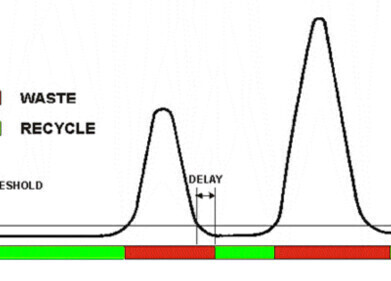-
 Smoking cigarettes is a known cause of cancer
Smoking cigarettes is a known cause of cancer
HPLC, UHPLC
Smoking 'contributes' to oxidatively induced DNA damage
May 13 2011
The report, taken from Tobacco Induced Diseases, looked at how three DNA lesions reduced after participants had kicked the habit.
A sample of people from a 16-week smoking cessation clinical trial were used, with blood samples taken and leukocyte DNA extracted for the 3 DNA lesions through liquid chromatography tandem mass spectrometry.
Following this, a change in lesions over time was looked at using generalised estimating equations, taking into account gender, age and treatment condition.
"Results from this analysis suggest that cigarette smoking contributes to oxidatively induced DNA damage, and that smoking cessation appears to reduce levels of specific damage markers between 30-50 percent in the short term," the report concluded.
Recently, a smoking ban in public places was introduced in China, affecting more than 300 million people.
Digital Edition
Chromatography Today - Buyers' Guide 2022
October 2023
In This Edition Modern & Practical Applications - Accelerating ADC Development with Mass Spectrometry - Implementing High-Resolution Ion Mobility into Peptide Mapping Workflows Chromatogr...
View all digital editions
Events
May 15 2024 Birmingham, UK
May 19 2024 Brno, Czech Republic
May 21 2024 Lagos, Nigeria
May 23 2024 Beijing, China
May 28 2024 Tel Aviv, Israel













